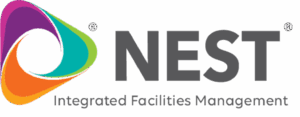Key Takeaways
1. A corporate password protection policy outlines the guidelines and requirements for creating, storing, and managing passwords within an organization.
2. Enhance security by requiring more than just a password for account access with password security protocols for employees.
3. Contact IS Partners to identify password vulnerabilities through gap analyses and assessments. Our experts will help you address these vulnerabilities fast!
What is Corporate Password Protection?
Corporate password protection involves guidelines and practices for how employees, partners, freelancers, and clients should create, store, use, and manage passwords within an organization.
Passwords are the initial barrier against unauthorized access to online accounts, devices, and files. When one person in your company has a compromised password, your entire network system and databases are exposed to many cybersecurity threats and vulnerabilities.
This is why strong corporate password security is necessary to safeguard data from emerging threats.
What Is a Corporate Password Policy?
A corporate password policy outlines the rules and guidelines for how passwords should be created, stored, used, and managed within an organization. This policy can be a separate document or part of your company’s broader IT policy.
Key areas covered in the policy include:
- Requirements for setting strong passwords
- Rules for saving, protecting, and managing unique passwords on work devices
- Guidelines for maintaining password security
The policy may also address employee training on password best practices and the company’s response in case of significant security breaches. It may also include how you conduct risk or threat assessment.
The Potential Impact of Compromised Passwords
The impact of compromised passwords is a serious concern for organizations and individuals. As time passes, the number of exposed passwords keeps rising troublingly. With that being here are some examples if your passwords are compromised.
- Unauthorized Access. Hackers can break into user accounts, steal sensitive information, or act maliciously.
- Identity Theft. With access to your account, hackers can impersonate you, gain entry to other accounts, and potentially steal personal information for identity theft.
- Financial Loss. If hackers get into your financial accounts, they can steal money or make unauthorized transactions, leading to irreparable financial damage.
7 Vital Tips to Increase Password Protection
Outside threats aren’t the only issues you must be prepared for when protecting your computer network security and data. Many vulnerabilities are created due to the actions of current and past employees.
Companies must prioritize password protection to limit system threats and data vulnerabilities. Follow these tips to enhance your company’s password protection methods and reduce cloud security risks.
1. Use a Password Manager
Use an enterprise password manager or password management tools for better security measures. While frameworks like the NIST don’t specifically recommend password management solutions, they encourage companies to allow copy-paste functionality, making it easier for users to manage complex passwords.
The NIST also requires companies to remove user-generated passwords from their servers immediately after creation, using a zero-knowledge password protocol.
When using a business password manager, having an option to ‘show password’ is helpful while entering it. This feature reduces the need to re-enter long passwords, making it easier for users to create and use strong, complex passwords without the frustration of typing errors.
Disabling the ‘show password’ option could discourage people from using password hygiene, which is why it’s an important feature to consider.
Below is a list of top-rated password managers you can use:
- Open-source for transparency.
- Unlimited free plan for password storage and syncing.
- Annual third-party security audits.
- Premium features like vault health reports and 1GB file storage.
- Intuitive and easy to use.
- Travel mode for hiding sensitive info during travel.
- Advanced security features like passkey support.
- Paid individual and family plans available.
- Compatible across multiple platforms.
- Biometric login for easy access.
- Premium features like data breach reports and email masking.
- Free tier available with limited features.
- Allows offline password access.
- Add-ons like extra cloud storage and dark web monitoring.
- Strong security suitable for individuals and businesses.
- Focus on security with features like VPN and phishing alerts.
- Comprehensive password health reports.
- Premium plans, though more expensive.
Each of these password managers offers unique benefits, making them suitable for different user needs and preferences. Choosing the right one depends on specific requirements, such as the need for free unlimited storage, advanced security features, or ease of use across multiple platforms.
2. Keep Different Passwords for Every Account
In this world where people fear losing their privacy, it seems strange that employees use the same passwords for logins to company computer systems as they would for social media sites and personal web pages.
Unfortunately, this is an unpleasant reality as people only have one password for every online account. Encourage a separate password for access to company user accounts. Using a secure password manager, having different passwords for every account can be streamlined.
3. Institute Periodic Password Change Requirements
This should be tweaked. It runs counter to the blog post by AJ linked below. Changing passwords periodically is something NIST explicitly recommends against as it leads to people using bad habits to create those passwords, e.g. only changing 1 character compared to the last password.
It’s not an issue only when users are active users of password managers and use the pw managers to generate and save all their passwords.
Would it be surprising to hear that a few of your employees use the same password they started out with when hired decades ago? It shouldn’t be because once an employee has a password that they can easily remember, they hate to change passwords as they have to memorize it all over again.
Your company needs to implement password protection policies that focus on periodically changing the password at a set schedule. However, this solution comes with a fine print.
New passwords must be more complex or different from the previous one. Changing one character to a new one is definitely not the best way to fulfill this requirement.
Use password managers to generate random passwords that can be managed
4. Audit Systems for Extra Employee Accounts
Some employees like to create backdoor access to computer systems by creating multiple user accounts. They may have created these excess accounts to perform certain functions for the company.
If a disgruntled employee leaves, they can use these access points for unauthorized entry into network systems to perform various illegal activities. Check all computers while auditing network systems as you delete these multiple accounts.
5. Don’t Use “Password Hints”
Avoid using “password hints.” Some companies provide hints or ask personal questions to help users remember complex passwords. These hints could be a word, a phrase, or anything that triggers your memory.
However, with so much personal information shared on social media or easily obtained through social engineering, these hints can make it easier for attackers to guess or find your passwords. Because of this, the NIST guidelines now recommend against using password hints.
6. Use Multi-Factor Authentication
Use multi-factor authentication (MFA) to enhance security. MFA adds an extra layer of protection to the login attempts by requiring more than just a password. For instance, after entering your password, you might also need to enter a code sent to your email, answer a security question, or use a fingerprint scan.
MFA typically involves at least two of the following:
- Something you know: like a password
- Something you have: like a phone
- Something you are: like a fingerprint
For example, the NIST guidelines now mandate using MFA to secure personal information online. However, these guidelines are specific about what counts as valid forms of authentication.
7. Limit the Number of Allowed Password Attempts
Sometimes, employees can’t remember their password and will make several attempts to log into their computer before requesting a password reset. Yet hackers exploit this setup by accessing a user’s email address and requesting a password reset.
Then, they will try to match the password to different user names to enter the computer system.
Limiting the number of password attempts, much like a bank ATM machine limits the number of allowed mistakes when typing in the PIN, offers added company password security. It minimizes the chances that an unauthorized person will manipulate the computer systems by matching passwords to user names.
Limiting the number of allowed password reset requests is also a sound best practice. Verify email addresses, cease multiple requests to the same email address, and use other methods — such as SMS — to send out password resets.
Importance of Password Protection for Any Business
The importance of password protection for any business cannot be overstated. In the UK, half of all cyber threats occur because hackers exploit vulnerabilities like unpatched software or weak passwords. When a user password is compromised, the consequences for a small business can be severe without cybersecurity awareness in place. Here’s why it’s important:
- Customer Information Protection. Businesses must also comply with regulations protecting private customer or patient information. Rules like GDPR, HIPAA, or PCI DSS require companies to use strong passwords and control who can access certain data. Please comply to avoid hefty fines and loss of trust from customers and stakeholders.
- Protection Against Cyberattacks. Strong passwords also help protect corporate passwords against phishing attacks, where cybercriminals try to trick users into giving up their credentials. Overall, secure passwords are essential for preventing unauthorized access to critical systems and sensitive information.
- Avoids Data Breaches. Weak passwords are a major cause of data breaches. Many people don’t take password security seriously enough. A recent IT security survey found that nearly half of all internet users reuse the same password across multiple accounts. Other experts estimate that up to 30% of users have experienced a data breach due to weak passwords without complexity requirements.
Protect Your Data with Strong Password Controls – Contact IS Partners Today
Password protection is a critical component of safeguarding sensitive data and systems. The NIST guidelines provide essential standards for password complexity and management, ensuring that your organization’s security policies are up to par. Regularly reviewing and implementing these guidelines is key to maintaining top-level security.
If you’re concerned about gaps in your network security or feel your current internal controls aren’t effectively preventing data breaches, IS Partners is here to help.
What Should You Do Next?
Here’s how we can help.
Gap Analysis & Risk Assessment. Identify vulnerabilities in your password policies and access controls.
Internal Audits. Ensure your password management aligns with NIST guidelines and other industry standards.
Attestation Reports. Demonstrate your commitment to data protection and enhance trust with stakeholders.
Take proactive steps today to close security gaps and protect your sensitive information. Contact IS Partners for a consultation and strengthen your defenses.














